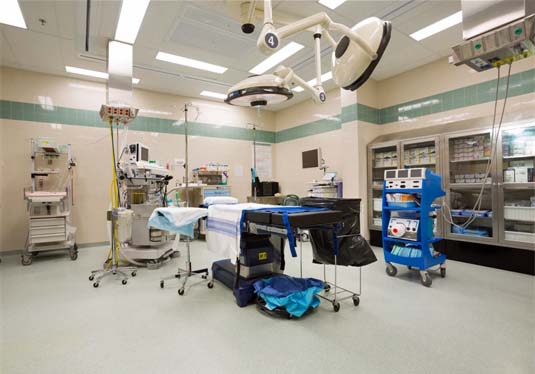In recent years the electricity demand has grown rapidly. To keep up with this growth, many large cities have been building new power plants and expanding their existing ones to accommodate increased energy usage. Although these power plants are built and maintained by professionals, sometimes accidents happen that lead to a loss of power. When this happens, hospitals can be left without a way to provide their patients with life-saving equipment such as ventilators and heart monitors.
Hospitals are often the largest consumers of electricity in their respective areas. They have a high demand for energy not only for their use but also to power emergency equipment in case of a blackout. Generators are an integral part of hospitals these days.
Types of Power Outages
Hospitals typically experience two kinds of outages: planned or scheduled and unscheduled outages that occur unexpectedly. Planned outages are performed by the hospital’s electrician or maintenance team for routine inspections or upgrades. Unscheduled outages are often caused by weather-related events, such as hurricanes, high winds, floods, earthquakes, and even snowstorms.
Uses of Generators in Hospitals
The power generators in hospitals are necessary to keep all the machinery working in the hospital functional. But there are other ways to ensure that hospitals don’t lose power during emergencies, which is why every hospital has backup generators on standby.
1. Power Life-Saving Equipment
Many essential hospital life-saving equipment like ventilators, defibrillators, etc., require a power backup facility to run the unit during emergencies.
The purpose of life-saving hospital equipment like ventilators, cardiopulmonary resuscitator (CPR) machines, ECG monitors, etc., is to save lives. Still, it requires an uninterrupted power supply for its smooth functioning.
Power backup systems prevent intrusions and disturbances during emergencies when the normal power fails. Hospitals’ life-saving equipment uses batteries or standby generators to provide continuous power supply in case of a power outage, allowing hospitals to continue treating patients despite power fluctuations. Keeping these life-saving devices running ensures that patients get the best treatment possible in emergencies.
2. Preserve Medicines and Medical Samples
It is a common practice to store samples and medicines at the hospitals for future use. These samples are preserved in refrigerators, making it easy for nurses to get them out when asked by the doctors. However, this method does not always work well, especially during a power outage.
Emergency power is used to protect medical supplies.
Blood and other medical samples require it to be kept cool at risk of being damaged if power is cut off. It can delay patient care since patients require fresh samples. Also, tests may not be sent out correctly.
3. Continuous Communication
Communication is an essential part of keeping a medical facility running smoothly, but power interruptions can be detrimental to the quality of communication. The moment backup systems are activated, all employees must know how they will communicate during the outage.
It is essential to define an effective flow of interdepartmental communication during backup mode usage. It is to ensure the hospital staff can maintain communications effectively.
4. Daily vital functions
The most crucial function of generators in hospitals is that they provide electricity when the primary energy source is unavailable. Power generators ensure the daily hospital functions have minimal disruptions. For example, ensuring lights and lifts are working, and patients can still access hot water for personal use.
5. Avoid Food Waste
It’s not only medical equipment that is susceptible to spoiling when there is a power failure. Generators can also stop food waste and loss of money!
In the event of a power failure, food items can spoil and be costly for the hospital. Imagine how much waste that could be for a hospital that provides all its patients with food.
6. Save Patient Data
Generators at hospitals also perform administrative duties. When computers are power-deficient, they do not shut down correctly. It could lead to corrupted data or files not saving.
In a medical establishment, the loss of information is very challenging. Medical records are stored on the internet, and it can be challenging to treat the person without access to their medical history. If there’s a loss of offering the best treatment or diagnosis for a patient becomes a challenge. Power generators offer access to the most crucial patient data.
7. Reduce Patient Care Disruption
Hospital generators must comply with the necessary country standards. It guarantees reliability and prevents interruptions to the care of patients.
The emergency power must kick into action within seconds. Specific generators can do this instantly without delay.
In Conclusion:
Hospitals will often choose to invest in generators because they are beneficial for several reasons. It’s essential to make sure you have a reliable generator in case of emergencies or power outages, and it’s also necessary to make the right decisions when choosing one to buy. Generators are used to produce electricity in places where the power supply is down. Additionally, to keep medical equipment charged and running, which is why hospitals use them.
When hospitals use generators, they often protect the critical systems that keep their patients healthy and comfortable.












